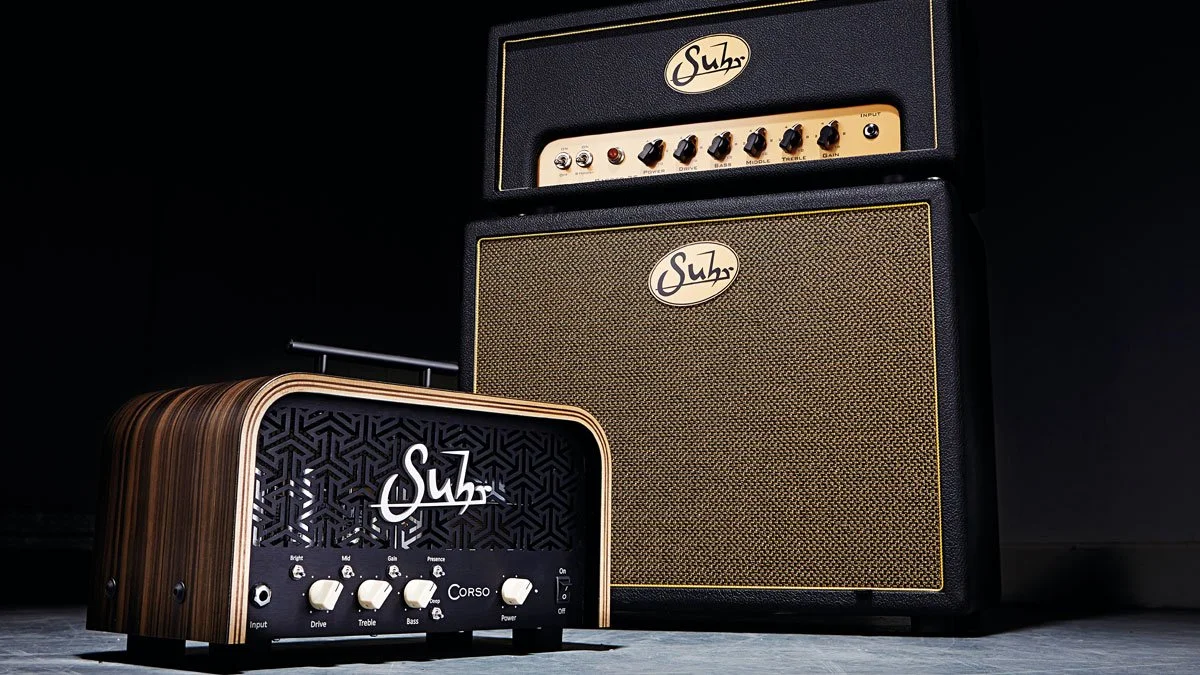Should I Buy a Big or Small Amp? Choosing the Right Amp for Your Guitar Lessons in Hockley, Essex
By Ben Makes Music
If you're taking guitar lessons in Hockley, Essex, one of the most important decisions you’ll face is choosing the right guitar amplifier. Whether you’re a beginner or an experienced player, the size of the amp you buy can have a big impact on your practice and performance. In this blog, we’ll help you decide whether a big or small amp is best for your needs, taking into consideration factors like sound quality, practice space, and your goals as a guitarist.
Why Does Amp Size Matter?
When you're just starting guitar lessons in Essex, you may wonder if you really need a big amp or if a small one will do. The right amp can make a world of difference in how you sound, but it's important to think about how you’ll use it.
A larger amp may offer more power and a fuller sound, but it might be overkill for home practice or smaller settings. On the other hand, a smaller amp could be more than enough for practice but may not provide the volume or depth you're looking for in a live setting.
Let’s break it down to help you decide.
What’s the Difference Between Big and Small Amps?
1. Big Amps (50W and Above)
Big amps are perfect for live performances, jam sessions, or if you're aiming to get that big, powerful sound in your music. They offer higher wattage, which allows for more volume and better sound projection.
Pros:
Can easily fill larger spaces and venues with sound.
Offer a wide range of tones and effects, giving you flexibility in sound shaping.
More powerful speakers for richer bass and clear treble tones.
Cons:
Can be heavy and bulky, making it harder to move around.
Might be too loud for practice at home, especially if you’re in a flat or semi-detached house.
More expensive.
2. Small Amps (Under 30W)
Small amps are generally best for beginners or for home practice. These amps are portable, affordable, and can still offer a surprising amount of power and versatility, depending on the model.
Pros:
More affordable and lightweight, making them easy to transport.
Ideal for smaller practice spaces.
Often come with headphone jacks, so you can practice quietly and not disturb others.
Cons:
May not have the same volume or depth of tone as a larger amp.
Limited to smaller settings (not ideal for large performances).
What Should You Consider When Buying an Amp for Your Guitar Lessons?
1. Where Will You Be Playing?
If you’re planning on playing small gigs, jamming with friends, or performing in larger venues, a big amp might be necessary. But if you’re primarily practicing at home or in a small studio, a small amp should be more than enough.
2. Practice Space
Consider the size of your practice area. If you’re in a smaller space like a bedroom or a flat in Hockley, a big amp could overwhelm the room with sound. A small amp will allow you to practice without disturbing others.
3. Sound Quality vs. Volume
For home practice, you don’t necessarily need high volumes. However, you’ll still want to get good sound quality. Small amps can still give you great tones for practice, especially when paired with pedals for added effects.
Getting the Best Out of Your Guitar Lessons with the Right Amp
Once you’ve decided on the size of your amp, you can make the most out of your guitar lessons in Essex. A good amp is an important tool for learning because it helps you hear the subtleties of your playing.
Practice Quietly: If you’re in a shared space or need to be mindful of noise levels, a small amp with a headphone jack is perfect. You can practice without worrying about disturbing anyone.
Tone Shaping: Both big and small amps allow you to shape your tone, but with bigger amps, you might have more features and effects to experiment with. Learn how to tweak your settings with your guitar teacher in Hockley to get the best sound out of your amp.
Consistency: Practice consistently with your chosen amp. Whether it's big or small, getting comfortable with your amp will help you develop your playing style and improve faster.
Final Thoughts: Big or Small Amp for Guitar Lessons?
At the end of the day, it all comes down to what you need as a guitarist. If you’re looking for something portable and easy to use for home practice, a small amp will be a great choice. But if you're aiming to play in bands or perform on stage, a big amp will give you the power and versatility you need.
No matter your choice, having the right guitar amp will make a huge difference in your overall learning experience. With guitar lessons in Hockley, you can learn how to get the best out of your amp, explore different sounds, and develop your playing technique.

